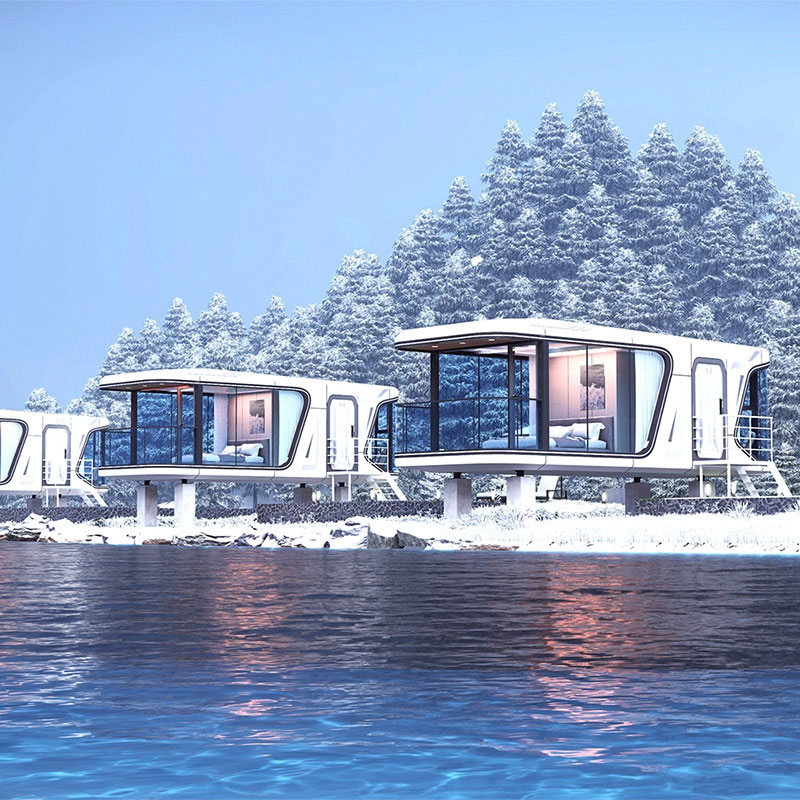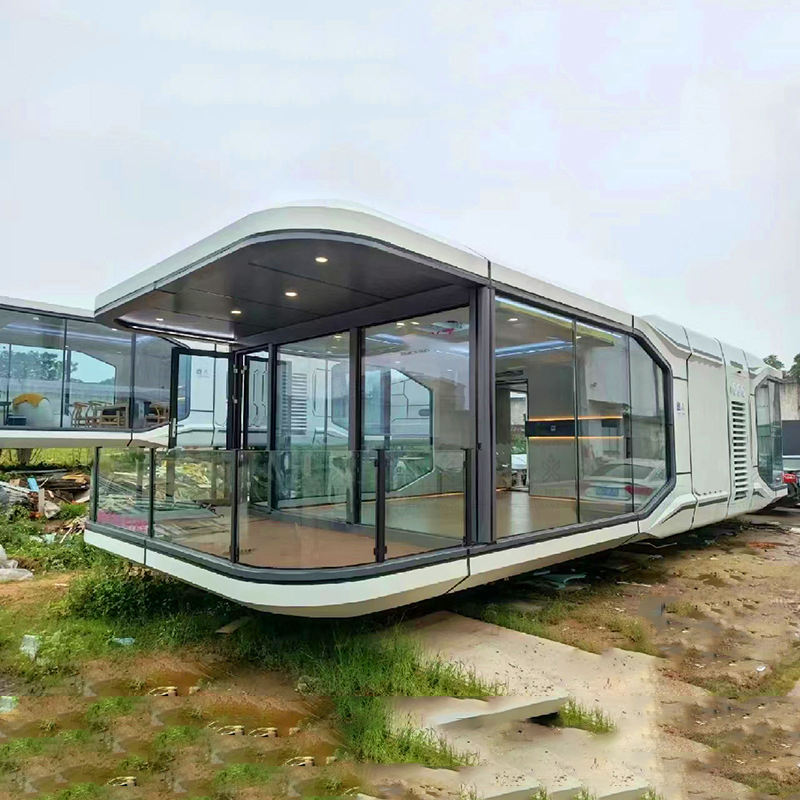How Pod Homes Are Revolutionizing Affordable Housing in Urban Areas
Wiki Article
Why Modular Residences Are the Future of Sustainable Living
Modular homes are progressively identified as a pivotal solution for sustainable living, providing a blend of effectiveness, cost-effectiveness, and ecological benefits. The adaptability of modular layouts enables for the combination of sustainable technologies and products tailored to specific needs.Ecological Advantages of Modular Homes
The environmental advantages of modular homes represent a substantial action toward lasting living. These homes are built in controlled manufacturing facility setups, which considerably minimizes waste produced during the building process. By enhancing products and minimizing excess, modular construction adds to a much more reliable use sources contrasted to standard building methods.Additionally, modular homes are commonly designed with energy efficiency in mind. Many incorporate advanced insulation strategies, energy-efficient home windows, and sustainable products, adding to reduced energy usage. This can lead to lowered greenhouse gas emissions over the life expectancy of the home, boosting its overall environmental profile.
The capability to transportation and construct modular parts on-site likewise reduces the carbon impact connected with building logistics. Several modular homes are constructed to be adaptable and quickly upgradeable, enabling property owners to implement lasting innovations, such as solar panels and energy-efficient heating systems, over time.
Inevitably, the ecological advantages of modular homes not only advertise lasting living but likewise urge an even more accountable strategy to real estate advancement, aligning with international efforts to fight climate change and protect all-natural resources for future generations.
Cost-Effectiveness and Price
Building a home often represents among the biggest financial investments people make in their lifetime, and modular homes use a compelling remedy for those seeking cost-effectiveness and cost. One of the main advantages of modular homes is their reduced building expenses contrasted to conventional site-built homes. The structured production procedure allows for considerable financial savings on labor and products, which translates to lower costs for consumers.Furthermore, modular homes typically have shorter building and construction timelines. This not just reduces costs related to financing and insurance policy but likewise minimizes the threats connected with rising cost of living and fluctuating market problems. Several buyers locate that modular homes can be tailored to fit their spending plans without compromising high quality or style.
Additionally, energy efficiency is usually developed right into the design of modular homes, resulting in decreased utility costs with time. Lots of manufacturers focus on lasting products and methods, additionally boosting the lasting economic feasibility of these homes. Generally, the combination of initial cost savings, quick building and construction, and continuous power efficiency makes modular homes an appealing alternative for those seeking to invest in sustainable living without damaging the financial institution.
Effectiveness in Building
Modular homes not only use financial advantages yet likewise master building and construction performance. The modular building procedure involves the synchronised building of modules in a manufacturing facility setting while website preparation takes place concurrently. This parallel approach considerably decreases the overall timeline from conception to completion, usually reducing construction time by up to half compared to standard techniques.Moreover, factory-controlled settings improve quality control. By making use of precision production strategies, modular homes are built to specific specs, lessening waste and errors. This consistency not only causes a better product however likewise adds to sustainable practices by minimizing product waste during building and construction.
In addition, using modern innovation and automation in the manufacturing procedure allows for quicker assembly and reduced labor prices. Once the components are transferred to the site, they can be effectively assembled, better accelerating the timeline. This streamlined procedure is not just advantageous for contractors however also minimizes disturbances to the surrounding atmosphere during construction.
Personalization and Style Adaptability
A remarkable array of personalization alternatives identifies modular homes, permitting homeowners to customize their space to satisfy certain requirements and choices. This design flexibility is a hallmark of modular building, enabling customers to choose whatever from flooring strategies and space designs to finishes and fixtures. Unlike traditional homes, modular designs help with a collaborative technique where contractors and engineers work very closely with property owners, guaranteeing that each element straightens with private way of livings and aesthetic needs.Furthermore, modular homes can be quickly reconfigured or broadened, suiting transforming household characteristics or developing individual tastes. This adaptability not just enhances the home's functionality yet also contributes to long-term sustainability, as property owners can customize their spaces instead of look for new housing options.

Future Patterns in Sustainable Housing
Arising trends in lasting housing are reshaping the landscape of property building, highlighting environment-friendly techniques and ingenious technologies. One considerable trend is the integration of smart home modern technology, which enhances energy efficiency through automated systems that check and enhance energy intake. This not just reduces energy costs but likewise adds to a lower carbon footprint.Furthermore, using lasting materials is becoming significantly common. Building contractors are choosing reused, locally sourced, or quickly sustainable products, which minimize ecological impact and support neighborhood economies. Modular homes are acquiring appeal for their minimized waste during construction and their adaptability to different surfaces and environments.
One more trend is the unification of eco-friendly roofing systems and living walls, which boost air quality and offer natural insulation. These functions likewise advertise biodiversity in metropolitan areas.
Verdict
In final thought, modular homes arise as a critical remedy for lasting living, supplying substantial ecological benefits through lowered waste and power effectiveness. Their capsule homes australia cost-effectiveness and cost attend to the expanding housing demands in metropolitan areas, while effective building processes enhance overall efficiency. The integral customization and layout versatility accommodate diverse preferences and needs. As patterns in lasting real estate evolve, modular homes are positioned to play an essential duty in promoting environmentally friendly living practices for future generations.Structure a home commonly stands for one of the largest monetary investments individuals make in their life time, and modular homes use a compelling solution for those looking for cost-effectiveness and cost. One of the key advantages of modular homes is their reduced construction prices compared to traditional site-built homes. On the whole, the mix of first expense financial savings, quick building, and recurring power effectiveness makes modular homes an appealing alternative for those looking to spend in sustainable living without breaking the financial institution.
Ultimately, the customization and design versatility provided by modular homes make sure that they are not just structures, however personalized sanctuaries that reflect the unique identifications of their residents while promoting lasting living methods.

Report this wiki page